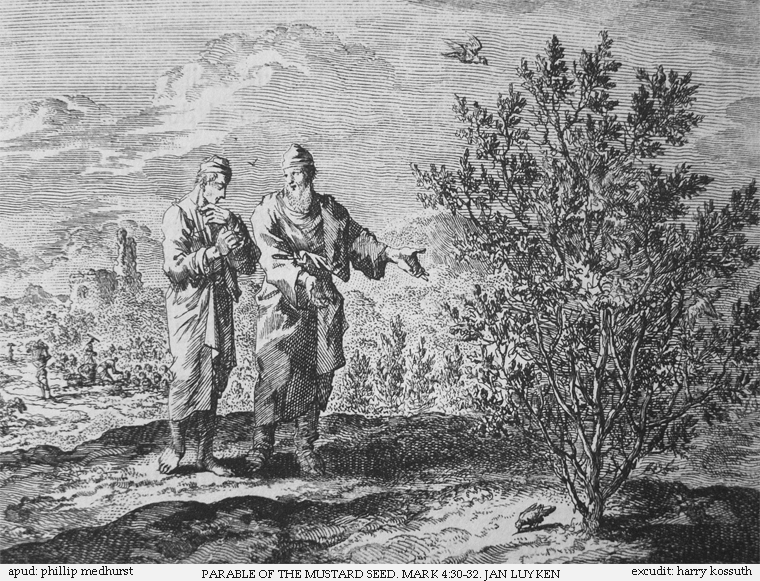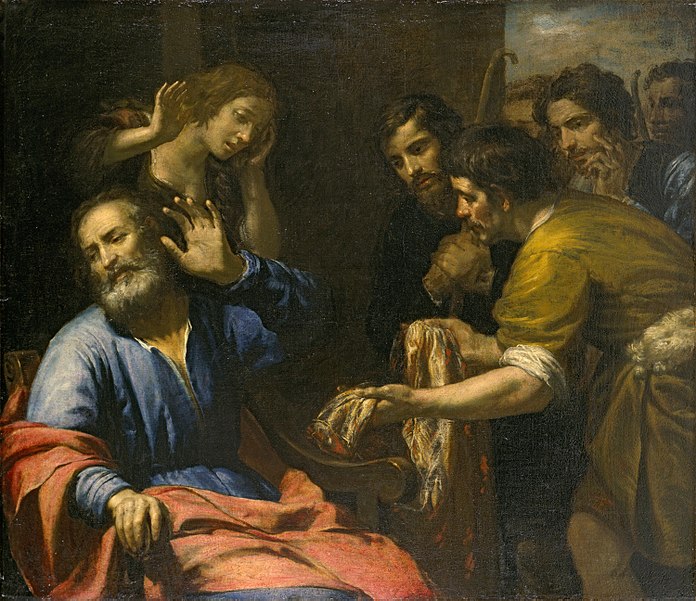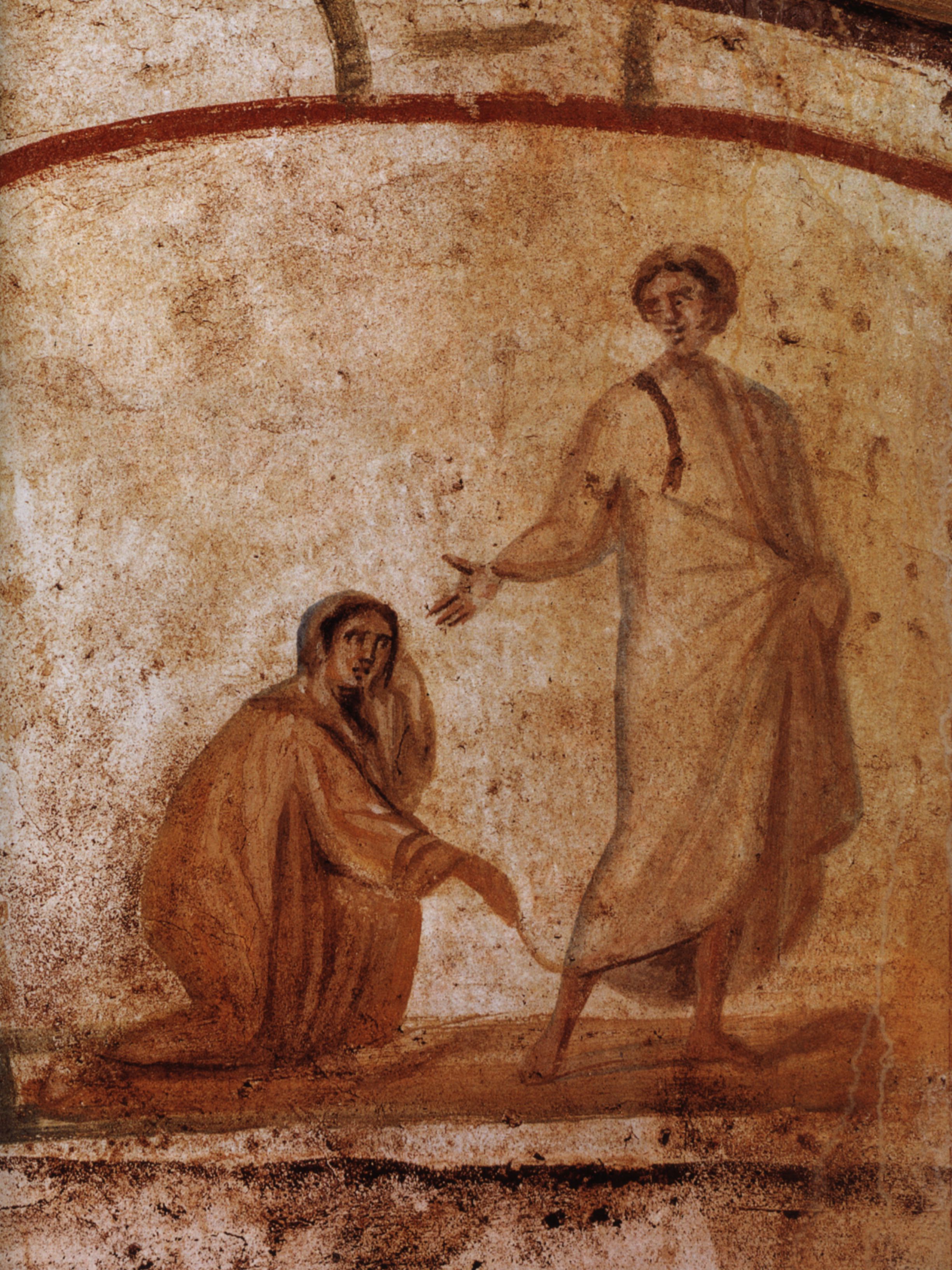Reference links:
- Overview of the Book of Genesis
- Overview of the Gospel of Matthew
- Overview of the Psalms
- Overview of the book of Proverbs
Old Testament
Yesterday, Pharaoh dreamed of seven healthy cows being eaten by seven sickly cows and seven full heads of wheat being consumed by seven scrawny one. Not surprisingly, Joseph interprets these dreams. Joseph tells Pharaoh that the dreams mean that Egypt will have seven years of prosperity followed by seven years of famine. Joseph tells Pharaoh he should find someone to manage the collection of food during the years of prosperity. Again not surprisingly, Pharaoh decides that Joseph fits the bill perfectly. Apparently, being able to interpret dreams qualifies you for managing a kingdom.
 Pharaoh makes Joseph second only to himself, and Joseph takes care of collecting grain in the good years. In the meantime, he lives a pretty good life. Amongst other things, Pharaoh gives Joseph a wife, Asenath daughter of Potiphera. Just in case you are confused, Potiphera is not the same person as Potiphar, Pharaoh’s captain of the guard and Joseph’s former employer.
Pharaoh makes Joseph second only to himself, and Joseph takes care of collecting grain in the good years. In the meantime, he lives a pretty good life. Amongst other things, Pharaoh gives Joseph a wife, Asenath daughter of Potiphera. Just in case you are confused, Potiphera is not the same person as Potiphar, Pharaoh’s captain of the guard and Joseph’s former employer.
As predicted, seven years of plenty are followed by seven years of famine. Fortunately for the people of Egypt, Joseph opens the storehouse to give grain to the Egyptians and sell it to people from surrounding countries. Here we get a interesting bit of perspective. The author of Genesis says,
And people from all around came to Egypt to buy grain from Joseph because the famine was severe around the world.
Like with the idea of a world wide flood (Genesis 7) or the idea that the devil could take Jesus to a high mountain and see all the kingdoms of the world (Matthew 4), this passage shows that the Biblical authors did not have a very good idea of the size of the earth and all of the kingdoms it contained.
The famine reaches Joseph’s family. Jacob sends his sons to Egypt to get grain. Joseph recognizes his brothers, but they do not recognize them. He accuses them of being spies and forces them to bring back Benjamin, the youngest brother and the only one who had not gone on the trip. Joseph throws them in prison for three days. And then, another cliff hanger!
I do have to say that I like this part of Genesis because it reads like a story. Much more interesting than many parts of the Bible.
New Testament
Today is the day of parables in the new testament.
Parable of the wheat and weeds: A farmer plants seeds. In the night, an enemy plants weeds with the seeds. The farmers say the weeds should stay until harvest time. When they have grown up, they will be harvested. The weeds will be burned and the wheat stored away.

Parable of the mustard seed: The Kingdom of Heaven is like a mustard seed. A mustard seed is smaller than other seeds. It grows into a plant large enough for birds to build nests in. How can we interpret this? At a individual level, it could mean that a little bit of faith will grow into great rewards in heaven. Or maybe it is meant to be taken on an institutional level. The small religion Jesus was “planting” would grow into a large one.
Parable of the yeast: It only takes a little yeast to permeate bread. This seems to yield similar interpretations to the mustard seed.

Parables of the hidden treasure and the pearl: A dude finds a treasure in a field and sells everything he owns to buy the field. A merchant is searching for pearls and finds one of great value and so sells everything he buys to get it. We learn that it is worth giving up all you have for something of greater value. The implication here is that the ultimate reward is Heaven. However, the difference between the Kingdom of Heaven and a perfect pearl or a hidden treasure is that you can evaluate the worth of the latter two to see whether or not they are worth the sacrifice. You cannot even verify that the Kingdom of Heaven is real.
By telling all of these parables, Jesus supposedly fulfills the prophecy
I will speak to you in parables.
I will explain things hidden since the creation of the world.
Two problems with this supposed fulfilled prophecy. First, it is from a psalm (psalms are not prophecies). In context:
O my people, listen to my instructions.
Open your ears to what I am saying,
for I will speak to you in a parable.
I will teach you hidden lessons from our past—
stories we have heard and known,
stories our ancestors handed down to us.
Granting that “hidden lessons from our past” is kind of like “things hidden since the creation of the world”, the psalm still implies that the the parables will be new lessons from old, well known stories. I have never heard that the parables Jesus tells in the new testament are based on traditional stories.
The second problem is that if Jesus was going to go to the effort to explain “things hidden since the creation of the world”, he could have included some more impressive things. Some indication of the deep truths of astronomy or physics or biology perhaps. We do not need a text book, but something would have been nice.
Psalms and Proverbs
Today’s psalm has a very anthropomorphic description of God. I will give it an easier time here than I would elsewhere since the psalms are poetry, but it is still interesting. Imagine the following verses to be read in a big, dramatic voice.
Smoke poured from his nostrils;
fierce flames leaped from his mouth.
Glowing coals blazed forth from him.He opened the heavens and came down;
dark storm clouds were beneath his feet.Mounted on a mighty angelic being, he flew,
souring on the wings of the wind.He shrouded himself in darkness,
veiling his approach with dark rain clouds.Thick clouds shielded the brightness around him
and rained down hail and burning coals.The Lord thundered form heaven;
the voice of the Most High resounded
amid the hail and burning coals.He shot his arrows and scattered his enemies;
his lightening flashed and they were greatly confused.
I will also note that this is the same psalm that also contains the fairly well quoted verse, “The LORD is my rock, and my fortress, and my deliverer; my God, my strength, in whom I will trust; my buckler, and the horn of my salvation, and my high tower” (KJV). Funny how that part is quoted buy the part about shooting arrows and smoking nostrils is left out.

.jpg)


.jpg/800px-Wenceslas_Hollar_-_Judah_and_Tamar_(State_2).jpg)









.jpg)

